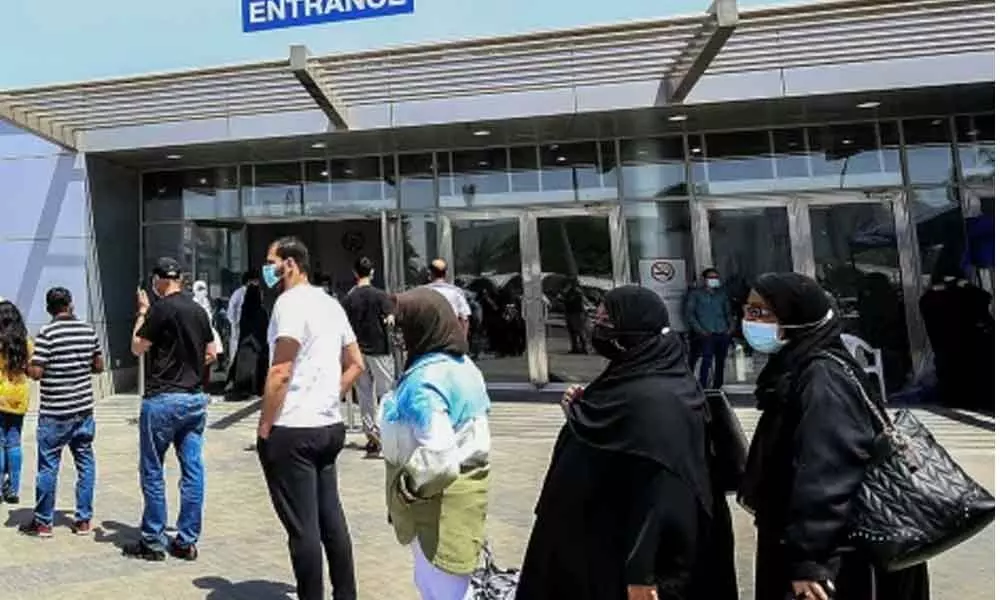Live
- TG to showcase T-Culture in big way at Bharat Parv
- Bankers told to be part of Telangana Rising
- ISTS wins ‘Excellence in Women’s Engineering Education’ award
- Hyderabad loses its Shaan-e-Benegal
- Bangladesh requests India to extradite Sheikh Hasina
- Women, elderly register for AAP 's welfare schemes
- Cyber Security Mela -2024 held
- Record 10 lakh govt jobs provided in 18 months: PM
- MyVoice: Views of our readers 24th December 2024
- Centre scraps 'no-detention policy' for Class 5, 8 students
Just In
Covid vaccination cards required for domestic travel in Indonesia


Covid vaccination cards required for domestic travel in Indonesia
Starting from Saturday, domestic travellers visiting Indonesia's Java and Bali islands will be required to show their vaccination records of receiving at least the first dose of a Covid-19 jab.
Jakarta, July 2: Starting from Saturday, domestic travellers visiting Indonesia's Java and Bali islands will be required to show their vaccination records of receiving at least the first dose of a Covid-19 jab.
The requirement is stipulated in a new Covid-19 restriction policy announced by Coordinating Maritime Affairs and Investment Minister Luhut Pandjaitan on Thursday, reports Xinhua news agency.
Specifically, those who would travel by planes should undergo a polymerase chain reaction (PCR) test two days before their flights, in addition to the Covid-19 vaccine cards.
For those using other long-distance transportation, such as buses and trains, they will be required to take a rapid antigen test a day prior to their trips.
The restriction policy was issued amid the soaring number of Covid-19 cases in the country.
Indonesia's Health Ministry reported another record-breaking day with 24,836 new cases and 504 new deaths on Thursday.
The new figures increased the overall infection tally and death toll to 2,203,108 and 58,995.
The country has so far administered 42,403,535 vaccine doses.
The Health Ministry has also reported alarming bed occupancy rates (BORs) in Jakarta and its neighbouring Banten and West Java provinces, which have surpassed 90 per cent.
Under the new policy, businesses in the non-essential sectors are required to enforce a work-from-home rule for their employees, and the essential sectors including banking and finance have to cut their office capacity to 50 per cent.
As for critical sectors such as those dealing with energy, health, security, and disaster mitigation, they are allowed to fully operate as usual under strict health protocols.
Schools continue their online classes. Supermarkets and traditional markets should open at a 50 per cent capacity until 8 p.m. and shopping malls should temporarily close until July 20.
Restaurants are only allowed to accept delivery orders or take-away, the policy says.

© 2024 Hyderabad Media House Limited/The Hans India. All rights reserved. Powered by hocalwire.com






